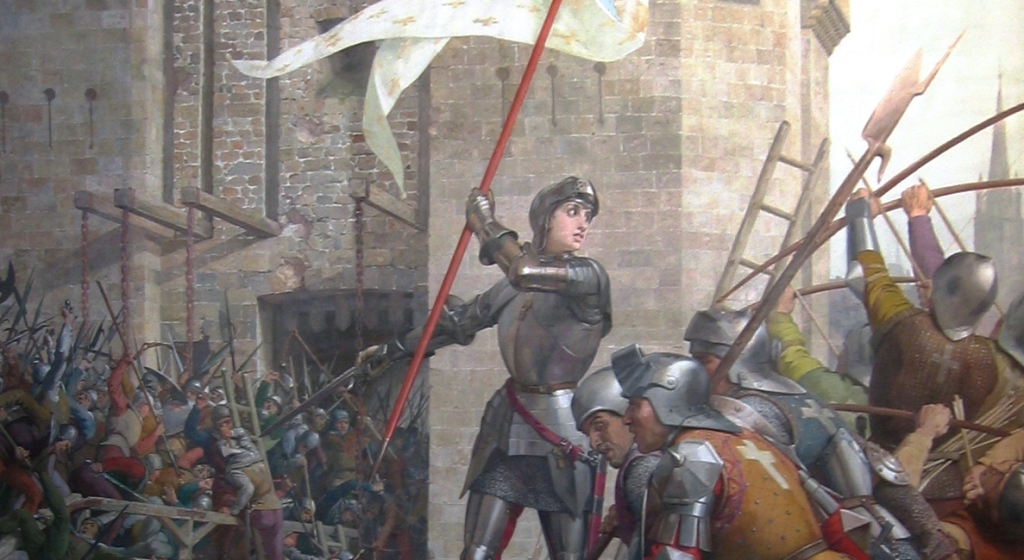
She was born in Domrémy in north-eastern France, where she was known as Jeannette. When she signed her name, she wrote Jehanne. But she called herself Jeanne La Pucelle, Joan the Maid. Even to call her ‘Joan of Arc’ – after her father’s name – is to deny something of her identity.
Saint Michael’s had been the first voice she heard – around noon, one day in the summer when she was thirteen or so. It came from her right, she said, surrounded by a great light. But it was Saint Catherine and Saint Margaret, virgin martyrs both, who came to her most. She heard them often at compline, at the close of day, or other times when the bells were rung. The voice was lovely and low and spoke in French.
The voices said many things Joan didn’t understand. But a few she did: she must free France from English tyranny and place Charles VII on his rightful throne. Merlin predicted a virgin warrior would come who “hides the flower of her virginity”, Geoffrey of Monmouth had written. And here was Joan, blessed with visions, inviolate, acting on instructions from God.
To Charles, she must indeed have seemed heaven. To the English and their Burgundian allies, the very opposite was true. God was on their side; her voices must come from the other place.
Forced to surrender to the Burgundians at Compiègne in May 1430, she might have been executed or ransomed. But to discredit Joan would also be to discredit Charles’ claim to the throne. A trial for heresy it was.
Her trial began on 9 January 1431; she first appeared for questioning on 21 February. The interrogations went on, day after day. Or rather, the same interrogation was repeated again and again. Sometimes she faced sixty or more men, all of great learning: churchmen, scholars, doctors of law.
You can hear her discomfort in the transcript as they push and push her to talk about her visions, to reveal the corporeality of her saints – which would prove them demons. “You overburden me,” she told her inquisitors. But they didn’t stop. Submit to our wisdom, our knowledge, our authority, they exhorted her. We act “in love and kindness”, they said.
She was sentenced to burn. She recanted. The sentence reverted to life imprisonment. Then she relapsed: the voices came again and said she had sold her soul to save her life. She was burned alive in the square at Rouen on 30 May.
Be bold, her voices always told her. And she was.
This is an extended version of a piece that first appeared in the January 2023 issue of History Today.
Like this? You can read more of Mathew’s History Today Months Past pieces here.
Leave a comment